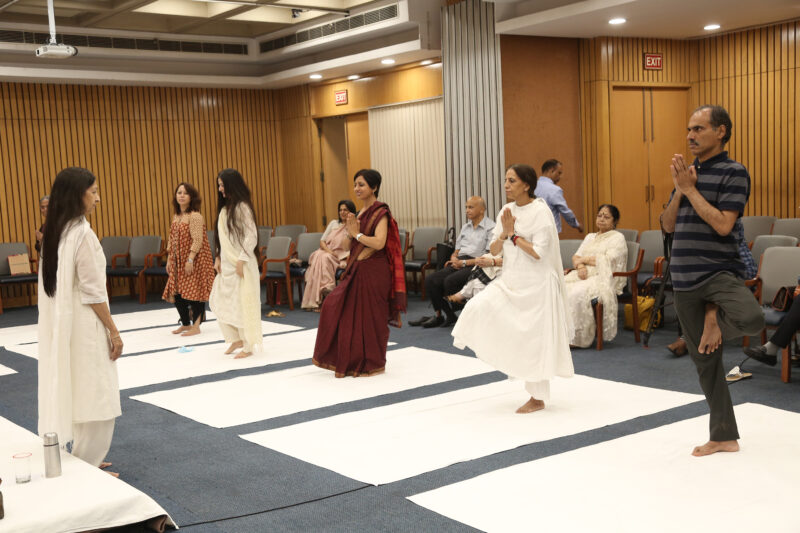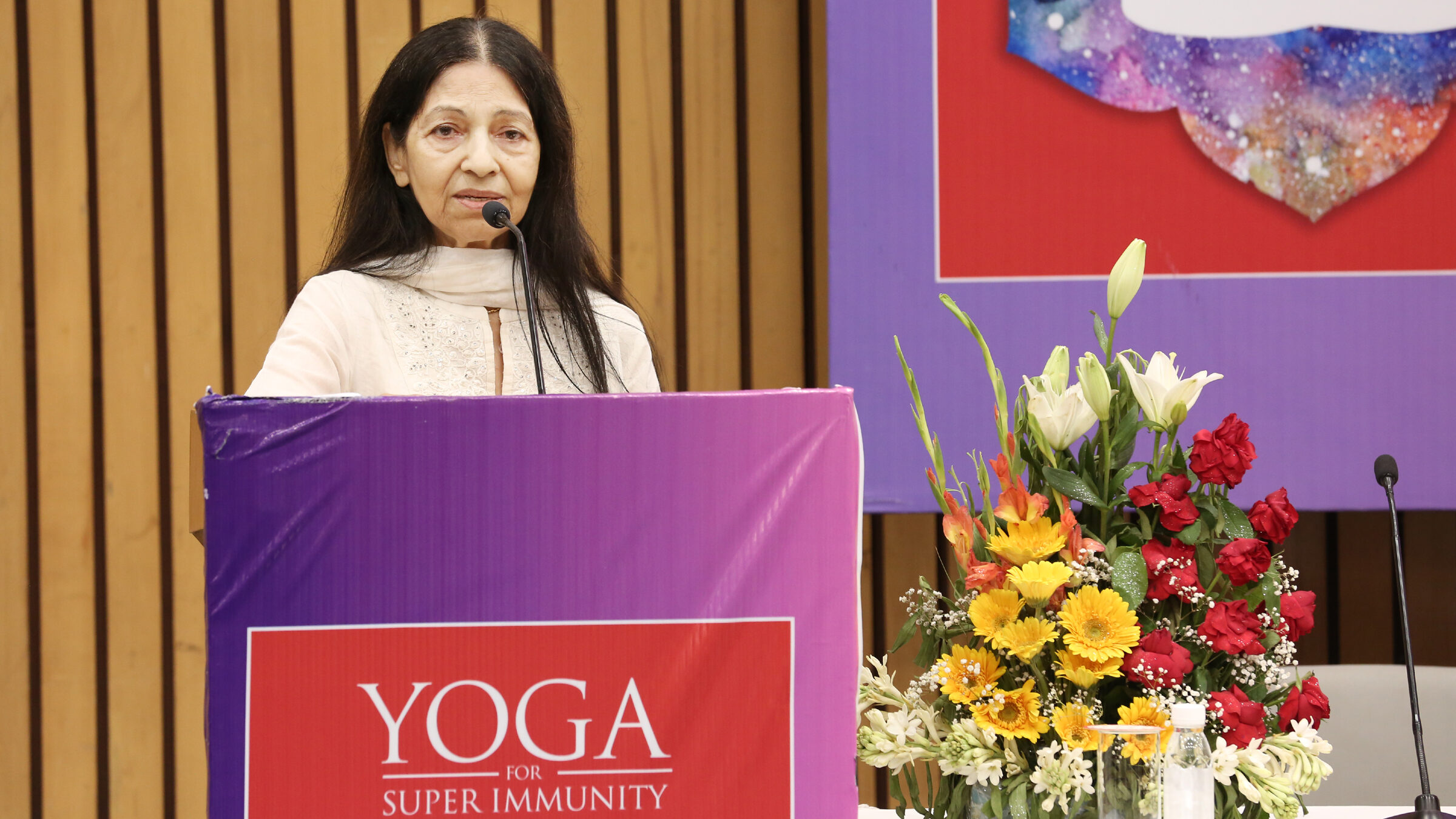‘Only 7% of Indians practice yoga daily’. This is the surprising finding of Pew Research Centre. Perhaps many people only turn to yoga in search of a cure for their diseases, and then give up the practice instead of making it a habit.
One person who frowns on this trend is Bijoylaxmi Hota, who has written a book to tell the world about the importance of yoga in increasing immunity.
As a young child, Hota had several health problems. By the time she reached her twenties, it was clear that doctors couldn’t help her. Her mother, who had cured herself of diabetes at a local yoga ashram, suggested she go there. Fifteen days of holistic yoga and she emerged as a healthy person.
Hota then became a fan for life. In her book, she talks about various asanas to improve the immune system along with some home remedies. The book comes out at a crucial time when the pandemic has impacted the immunity as well as the mental health of people across the world.
According to her, “Asanas and pranayamas alone cannot cure diseases as they are meant mainly for the physical body whereas we are not just a body but have a mind, a psyche and a soul as well. We can become super healthy with yoga, provided we choose the right practices and do them correctly following all the rules set by the ancient masters.”
Elaborating on the right way to practise yoga, Hota says that, “One should practice asanas, pranayama, meditation, cleansing techniques, suitable to the individual, problems, age and mental makeup to get the full benefit of yoga.”
She also prescribes Amroli (urine therapy) to cure diseases caused by vata, pita and kapha. Dating back to a 5,000-year-old text called Damara Mantra, urine therapy is advocated for health and longevity.

“Urine is anti-bacterial, anti-viral, anti-cancerous, anti-ageing, anti-fungal . It must be a difficult choice but I have seen people suffering greatly, choosing to take it and benefitting from it”, adds Hota.
Yoga works its magic when the body and blood are clean and wearing loose cotton clothes enables the blood flow, she adds. About the interest that yoga has evinced in western countries, Hota says approvingly, “They are taking the right step. If everybody practiced the right yoga from childhood, there would be less violence and hatred and fewer health issues.”
Stress can be the root cause of many ailments. In youngsters, the stress tolerance is very low and their nerves are over-strained.
Hota further says, “Practicing balancing asanas to strengthen the nervous system, tratak kriya to strengthen the mind, music meditation to soothe the emotional hurt. The overall stress tolerance is increased with regular practice. But a word of caution: Do not attempt meditation if you suffer from depression”.
In her experience, there is a formula in yoga for every condition. Regarding gynaecological problems of women, she advises that women should avoid all sour food a week prior to their period. They should practice Marjari and Shashank asanas which relieve cramps and abdominal breathing to relax the mind as stress can aggravate the pain.
Get the basics right
These are some rules for practicing yoga, as formulated by Hota:
1. Yoga should be practiced on an empty stomach. Food can be taken 10 minutes after the completion of the routine.
2. Use a folded blanket or rug for yoga practice. No soft spongy mattress or mat should be used as they do not provide the needed support to your back.
3. Face the east. Even when you lie down, your head should be in that direction.
4. Wear loose cotton clothes. Tight or synthetic ones restrict proper oxygenation of the system.
5. Avoid plastic neti pot and non-stick pan to heat water.
6. No microwave for any heating. The vitamins may remain intact, but the prana will be gone. 7. Follow the correct sequence of asanas.





